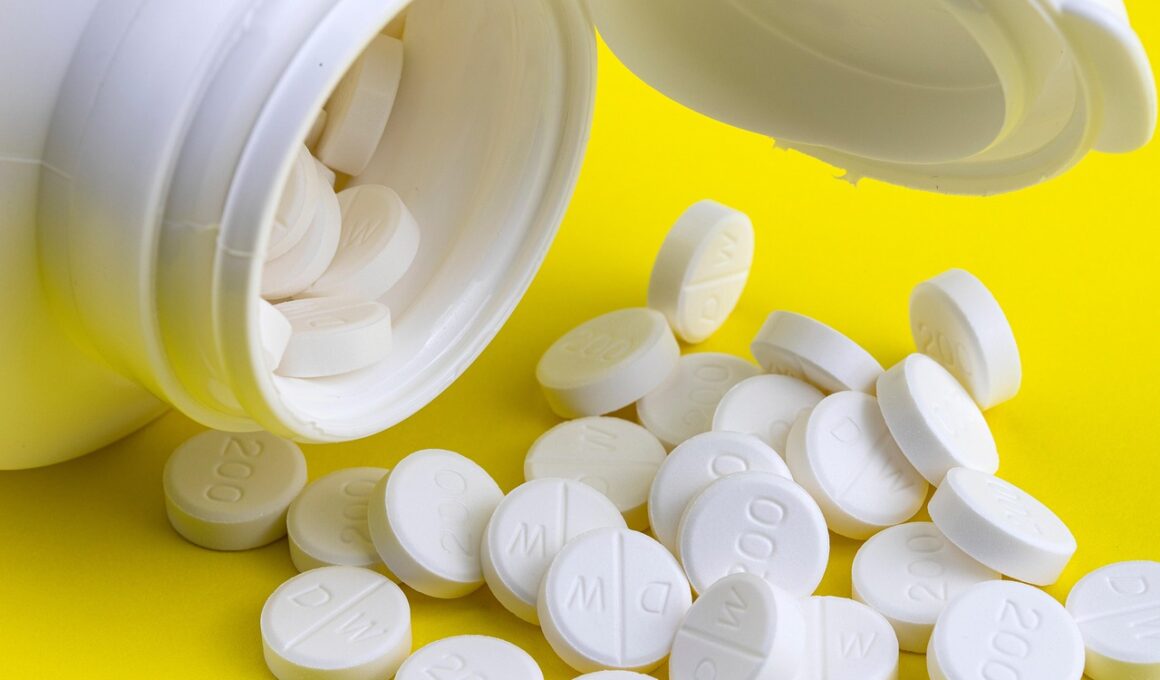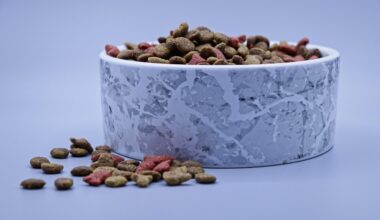How to Incorporate Enzyme Supplements into Your Cat’s Meal Plan
Enzyme supplements can greatly aid your cat’s digestion, enhancing nutrient absorption and overall health. While most cats receive adequate nutrition from their diets, many can benefit from added enzymes, especially if they are older or have health issues. Introducing enzyme supplements gradually is essential to allow your cat to adjust, which minimizes the risk of digestive upset. Start with a very small dose, and over several days, gradually increase the amount according to the product guidelines. It’s crucial to consult with your veterinarian before introducing any new supplements into their routine. Your vet can confirm the necessity and help identify potential interactions with existing medications. Additionally, ensuring your cat’s current diet is balanced is important, as supplements are intended to enhance, not replace proper nutrition. Research various brands to select a high-quality enzyme supplement that fits your cat’s dietary needs. Consider whether your cat prefers powders or chewable tablets for ease of administration. Always monitor your cat’s response to the supplements, as each cat is unique and may react differently to dietary changes.
Understanding the specific digestive enzymes your cat needs can be beneficial in choosing the right product. Common digestive enzymes include protease, lipase, and amylase, which help break down proteins, fats, and carbohydrates, respectively. When selecting an enzyme supplement, check for products containing a blend of multiple enzymes, as they often provide more comprehensive support. Look for supplements marketed specifically for felines since their digestive systems differ from those of other animals. For best results, follow the manufacturer’s instructions regarding dosage, based on your cat’s weight and age. Additionally, always feed enzyme supplements in conjunction with meals, as they work effectively this way. You can sprinkle powdered enzymes over wet food or mix them into dry kibble; however, ensure the food is palatable to your cat. Engage in observation to determine if the chosen method of serving is well received. Maintain a consistent feeding schedule when incorporating these supplements so your cat can adjust to the new routine. By providing a stable environment along with enzyme support, you’re paving the way for better digestive health.
Combining Enzyme Supplements with a Balanced Diet
A well-rounded diet plays a vital role in your cat’s health. Introducing supplements requires a careful approach. Choose high-quality cat food rich in protein, as cats are obligate carnivores. This means they need animal sources of protein to thrive, making it essential to consult with a cat nutrition expert. Consider adding enzyme supplements specifically formulated to enhance digestion and facilitate the breakdown of nutrient types. Ensuring your cat receives hydration is equally important when using enzyme supplements; providing fresh water will help in the digestion process. Gradually increase the amount of supplement while ensuring it complements their diet. Maintaining a diary of your cat’s health responses and any change in behavior helps track efficacy. Monitoring these can help determine if adjustments in dosage or food type are required. Some owners have found that alternating supplements can also mix things up and prevent tolerance issues from developing. Always stay vigilant for any signs of digestive distress as you introduce these supplements; if they occur, consult a veterinarian immediately.
Transitioning to enzyme supplements doesn’t have to be overwhelming. Start slowly, and engage your cat by providing familiar foods. Mix enzyme powders into favorite meals, as cats are more likely to accept changes in taste when combined with items they enjoy. Use an encouraging and patient approach, allowing your cat time to adapt to new flavors and scents in their meals. Ensure the food, whether wet or dry, has a positive aroma. Experiment with different recipes, an important part of every cat owner’s routine, to find what works best for your pet. This process improves acceptance of supplements while enhancing mealtime enjoyment. Remember to avoid sudden dietary changes, as they can cause gastrointestinal distress. Gradual shifts help your cat adjust better, reducing the chance of adverse reactions. Create a meal plan that includes enzyme supplements mixed in and maintain regular feeding times. This consistency aids the familiarity your cat develops with their diet. Furthermore, reinforcing positive behavior with rewards, such as a favorite treat or playtime, can also ensure a smooth transition.
Monitoring Your Cat’s Reactions to Enzyme Supplements
As you start to incorporate enzyme supplements into your cat’s diet, monitoring for changes is vital. Look for improvements in your cat’s energy levels and overall health as their digestion becomes more efficient. Observe their stools; a positive sign would be well-formed and less frequent bowel movements. This indicates that the enzymes are effectively aiding digestion. Pay attention to any adverse reactions, including vomiting, diarrhea, or changes in appetite. If any concerns arise, it’s crucial to consult your veterinarian immediately. They can help determine whether the supplements are suitable and address any side effects quickly. Additionally, keeping a log of your observations can help establish patterns that can provide insights into your cat’s health. Regular checkups with your vet can facilitate further assessment of your cat’s nutritional needs and any adjustments to their enzyme supplementation routine. This proactive approach helps ensure that your cat remains healthy and happy. Always remember that every cat is different; what works for one may not work for another.
Maintaining a healthy lifestyle alongside enzyme supplementation is essential for your cat. Regular physical activity, such as play sessions, helps improve digestion as well. Consider engaging your cat with interactive toys that stimulate physical movement and mental engagement. A well-rounded fitness regimen not only promotes better digestion but also improves weight management and overall health. Additionally, keep an eye on your cat’s stress levels, as anxiety can impact digestion. Create a calm environment that encourages relaxation during mealtimes. Stress management can include providing cozy resting spots and establishing a predictable routine for feeding and activities. The type of treats you offer can also play a part in their digestive health; rewarding with low-calorie, nutritious options can enhance acceptance of new foods or supplements. Incorporate these positive habits into your cat’s daily life alongside enzyme supplementation. Pay close attention to any changes in your cat’s behavior and well-being. If you remain observant and adaptable, you can ensure your furry friend thrives, making the most of their enzyme supplementation journey.
Conclusion
Incorporating enzyme supplements into your cat’s meal plan can significantly enhance their digestive health. As you follow the steps outlined, remember the importance of slowing down the introduction process and focusing on a balanced diet. Choosing suitable supplements and monitoring your cat’s reactions allows for a successful experience. Seeking your veterinarian’s guidance provides additional reassurance throughout this journey. They can help identify specific needs and monitor progress, creating a personalized plan for your feline friend. Ultimately, combining high-quality nutrition with enzyme supplements contributes to your cat’s health and vitality. You are ensuring they receive all the necessary nutrients for a happy life. Keep in mind that every cat is unique and may respond differently to supplements. Patience during this process is key; positive behaviors reinforce your cat’s comfort with supplements. With time, you’ll find an effective routine that enhances your cat’s health and well-being. The goal is a confident, playful companion who enjoys their meals without discomfort, reflecting your dedication to their nutritional needs.


